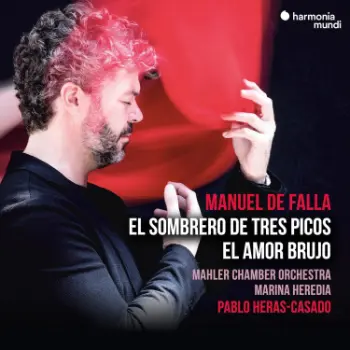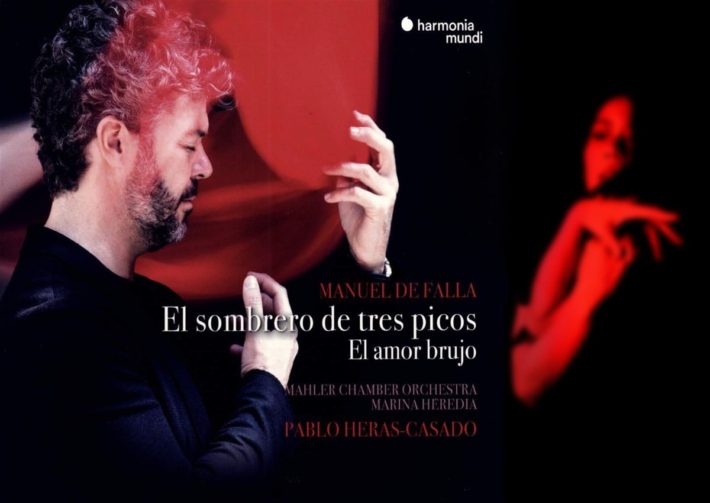Manuel De Falla’s “El sombrero de tres picos” (“The Three-Cornered Hat”) is immediately arresting, Casado setting an animated “Allegro ma non troppo” tempo with weighty timpani strokes answered by enthusiastically shouted “Oles” from the orchestra. An especially effective moment happens after the singer’s line “The devil may have dozed off, but he can wake up again”, later in this striking opening movement. Once again, the players answer with “Ole,” but this time in a sleepier, less enthused manner. It is this kind of thoughtful attention to detail and storytelling that makes this performance so successful. Casado and his players seem to be having the time of their lives, reveling in their exploration and realization of the score, and that enthusiasm completely draws the listener in.

At a little over 36 minutes, Casado’s interpretation is one of the fastest on record, yet nothing ever feels unduly rushed or glossed over. The Mahler Chamber Orchestra offers crisp playing of virtuosic unanimity, at one with Casado’s vibrant interpretations. The performances are complemented by Harmonia Mundi’s vivid recording, analytical yet warm, capturing a wide-ranging soundstage with plenty of front to back presence.
The orchestral playing is fantastic; especially noteworthy is the playing of the solo winds. Just listen to the cheeky playfulness of the Bassoon in Track 3, (2’38”, answered by sweetly singing strings) or the beguiling English Horn and Clarinet playing in the “Neighbor’s Dance (Track 5). The strings are just as impressive, capturing every subtle mood shift with complete conviction. The balance between winds and strings seems ideal, and it would be interesting to see how large the string sections are (Harmonia Mundi does not list the orchestral players in the booklet). Despite having only a small amount of music, mezzo-soprano Carmen Romeu proves to be a thoroughly engaging and passionate, partner in the storytelling. In short, this performance thrives on vividly conveying the ballet’s story of a Miller, his wife, and the Corregidor intent on stealing the Miller’s wife away. Casado galvanizes his players not so much retelling the story, but inhabit it.
Gypsy Spirit
Casado brings the same theatrical bearing to his performance of “El amor brujo”. Dutoit’s Montreal recording has served many critics as a benchmark for almost three decades, but a comparison with this new performance by the Mahler Chamber Orchestra and Casado leaves the Montreal recording sounding somewhat distant and muddy, Dutoit seems To focus on polish and refinement at the expense of full engagement with the ballet’s story.
Yvan Nommick’s liner notes detail Falla’s goal of capturing the authentic Gypsy spirit in his writing: “I have tried to “live” it as a gypsy, to feel it deeply, and I have used in it no other elements than those which I believed to express the soul of that race.” In keeping with this desire for an authentic sound, flamenco singer Marina Heredia performs the sung portions of the ballet. Some listeners may find this off-putting, because her singing style is rawer and more pushed when compared to the classically trained singers (in Dutoit’s recording, mezzo-soprano Huguette Tourangeau). Yet in the context of Casado’s interpretation, her sound is well suited to the music and uniquely alluring.
Excellent performances and interpretations in stunning sound. Hopefully Harmonia Mundi can convince these performers to record more music by Falla; even better, given Heras-Casado’s wide-ranging tastes in repertoire, some lesser-known Spanish repertoire. Despite the rather short playing time (62 minutes overall for a full price), with performances this captivating, strongly recommended.
Manuel de Falla – “El sombrero de tres picos”, “El amor brujo”
Carmen Romeu, mezzo-soprano
Marina Heredia, cantaora
Mahler Chamber Orchestra
Harmonia Mundi, CD HMM902271




















